Those who are accustomed to judge by feeling do not understand the process of reasoning, for they would understand at first sight, and are not used to seek for principles. And others, on the contrary, who are accustomed to reason from principles, do not at all understand matters of feeling, seeking principles, and being unable to see at a glance.
Begin vandaag nog met dit boek voor € 0
- Krijg volledige toegang tot alle boeken in de app tijdens de proefperiode
- Geen verplichtingen, op elk moment annuleren
Auteur:
Taal:
Engels
Formaat:
Machiavelli: The Prince
Niccolò Machiavelli
bookON LIBERTY - The Philosophy of Individual Freedom : Exploring the Limits of State Power and the Importance of Individual Rights
John Stuart Mill, W. L. Courtney
bookThe Divine Magician : The Disappearance of Religion and the Discovery of Faith
Peter Rollins
bookAdorno in 60 Minutes : Great Thinkers in 60 Minutes
Walther Ziegler
bookGender: Your Guide, 2nd Edition : The Gender-Friendly Primer on What to Know, What to Say, and What to Do in the New Gender Culture
Lee Airton
bookEight Years vs. Three Weeks – Executive Orders Signed by Barack Obama and Donald Trump : An Analysis of Landmark and Controversial Executive Actions
U.S. Government, White House
bookEn God beschikte een worm / druk 3 : over schepping en evolutie
bookPractices and Thought in Michel Foucault's Philosophy
Kai Alhanen
bookBehavior in Public Places
Erving Goffman
bookFoucault in 60 Minutes : Great Thinkers in 60 Minutes
Walther Ziegler
bookGreat Thinkers in 60 Minutes - Volume 1 : Plato, Rousseau, Smith, Kant, Hegel
Walther Ziegler
bookFriendship : 5O Great Advice To Create A Strong Relationship And Build A Long Lasting Friendship!
Kellie Sullivan
book
50 citations de Pascal
Blaise Pascal
audiobook350 citations de philosophes français
René Descartes, Michel de Montaigne, Blaise Pascal, Alexis de Tocqueville, Voltaire, Charles De Montesquieu, Jean-Jacques Rousseau
audiobookRagione e Cuore : Pagine scelte
Blaise Pascal
bookPensées
Blaise Pascal
bookPensées
Blaise Pascal
audiobookbookTankar :
Blaise Pascal
book400 Quotations from the Great Philosophers of the 17th Century
Montesquieu, Blaise Pascal, Baruch Spinoza, Voltaire
audiobook900 Quotations from Modern Philosophy
Francis Bacon, Michel de Montaigne, Immanuel Kant, Nicolas Machiavel, Montesquieu, Blaise Pascal, Jean-Jacques Rousseau, Baruch Spinoza, Voltaire
audiobook900 citations de la philosophie moderne
Francis Bacon, Michel de Montaigne, Emmanuel Kant, Nicolas Machiavel, Montesquieu, Blaise Pascal, Jean-Jacques Rousseau, Baruch Spinoza, Voltaire
audiobook400 citations des grands philosophes du 17ème siècle
Montesquieu, Blaise Pascal, Baruch Spinoza, Voltaire
audiobook600 citations de la philosophie française
Gaston Bachelard, Denis Diderot, Montesquieu, Blaise Pascal, Jean-Jacques Rousseau, Voltaire
audiobook600 Quotations from French philosophy
Gaston Bachelard, Denis Diderot, Montesquieu, Blaise Pascal, Jean-Jacques Rousseau, Voltaire
audiobook
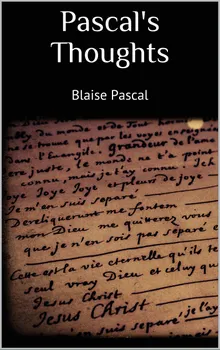



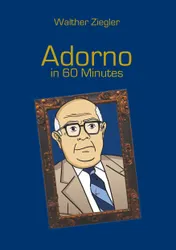



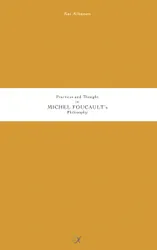
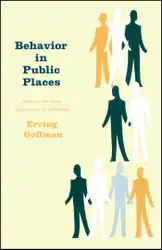

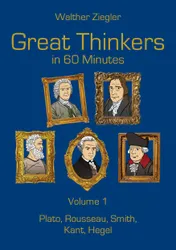



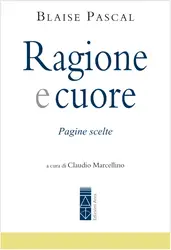
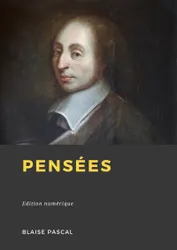

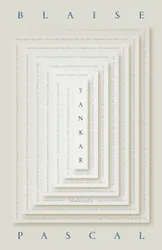
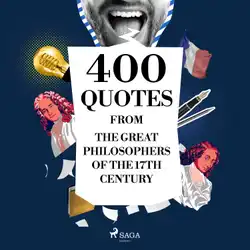
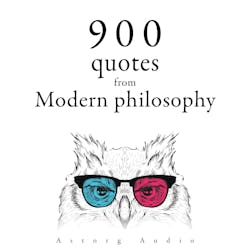


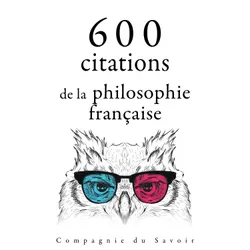
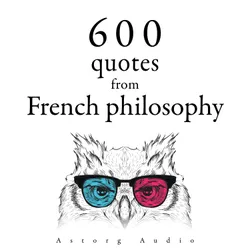
Carlijn
25-3-2024
Nog redelijk wat uit opgeschreven, maar (misschien komt dit door de opmaak) ook vaag: wat ben je eigenlijk aan het lezen? People are generally better persuaded by the reasons which they have themselves discovered than by those which have come into the mind of others. When we wish to correct with advantage, and to show another that he errs, we must notice from what side he views the matter, for on that side it is usually true, and admit that truth to him, but reveal to him the side on which it is false. He is satisfied with that, for he sees that he was not mistaken, and that he only failed to see all sides. Now, no one is offended at not seeing everything; but one does not like to be mistaken, and that perhaps arises from the fact that man naturally cannot see everything, and that naturally he cannot err in the side he looks at, since the perceptions of our senses are always true. Too much and too little wine. Give him none, he cannot find truth; give him too much, the same. For the present is generally painful to us. We conceal it from our sight, because it troubles us; and if it be delightful to us, we regret to see it pass away. We try to sustain it by the future, and think of arranging matters which are not in our power, for a time which we have no certainty of reaching. Let each one examine his thoughts, and he will find them all occupied with the past and the future. We scarcely ever think of the present; and if we think of it, it is only to take light from it to arrange the future. The present is never our end. The past and the present are our means; the future alone is our end. So we never live, but we hope to live; and, as we are always preparing to be happy, it is inevitable we should never be so. Our soul is cast into a body, where it finds number, time, dimension. Thereupon it reasons, and calls this nature, necessity, and can believe nothing else. If we must not act save on a certainty, we ought not to act on religion, for it is not certain. But how many things we do on an uncertainty, sea voyages, battles! I say then we must do nothing at all, for nothing is certain, and that there is more certainty in religion than there is as to whether we may see to-morrow; for it is not certain that we may see to-morrow, and it is certainly possible that we may not see it. I would have far more fear of being mistaken, and of finding that the Christian religion was true, than of not being mistaken in believing it true. It is the heart which experiences God, and not the reason. This, then, is faith: God felt by the heart, not by the reason. Faith is a gift of God; do not believe that we said it was a gift of reasoning. Other religions do not say this of their faith. They only gave reasoning in order to arrive at it, and yet it does not bring them to it. The knowledge of God is very far from the love of Him.
Om een recensie te schrijven, moet je de app downloaden